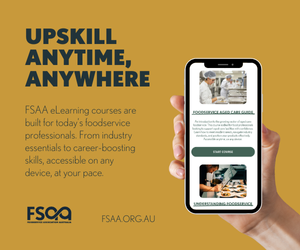McDonald’s Australia has launched a nationwide program that converts workplace training into verified university credits, offering more than 20,000 employees a pathway to higher education degrees.
The initiative, called ‘Archways to Opportunity’, allows crew coaches and restaurant managers to earn up to eight micro-credentials by completing their regular job training, workplace experience, and courses at the company’s internal training facilities. These credentials can then be applied toward undergraduate degrees at 11 participating Australian universities in fields including business, commerce, management, human resources, and technology.
The program marks the first time an Australian organisation has received certification from multiple universities nationwide for its internal training programs, eliminating the need for employees to complete additional coursework to earn academic recognition.
“Macca’s has always been famous for our exceptional skills and training programs, and we proudly invest millions of dollars every year into helping our people grow their skills and capabilities,” said Joe Chiczewski, CEO of McDonald’s Australia. “Archways to Opportunity is the next evolution of that commitment and shows our people that the skills and training they build at Macca’s are real, valuable, and recognised beyond our restaurants.”
Significant time and cost savings
Each micro-credential earned through the program counts for one subject credit in an undergraduate degree. When stacked together, the eight credentials can provide direct entry into a Master of Business Administration program at participating institutions.
The company estimates the program could save employees more than $20,000 in tuition fees and reduce the time needed to complete a bachelor’s degree by up to one year.
Partner universities include the University of Technology Sydney, Torrens University Australia, Adelaide University, James Cook University, Curtin University, Charles Darwin University, the University of Tasmania, the University of Canberra, the University of New England, Swinburne University, and the William Angliss Institute.
Learning while earning
The eight available micro-credentials cover competencies in problem-solving and data, leadership, engagement, and coaching, direction and purpose, customer focus, communication, collaboration, and agile innovation.
All credentials are earned through a combination of on-the-job learning, online courses, and face-to-face training at McDonald’s Charlie Bell School of Management—internally known as Hamburger University—and at regional training centres.
Zaakirah Khan, a restaurant manager at McDonald’s Mount Annan, exemplifies the program’s target audience: “I’d always planned to go to university but never imagined I’d have the support of McDonald’s in creating that opportunity. Now I’m able to take that next step, and it’s incredible to know that everything I’ve learned at Macca’s is giving me a head start.”
The nationwide rollout follows a successful pilot conducted earlier this year with education technology company Capability.Co, Torrens University, and the University of South Australia.
Industry-education partnership model
University leaders have embraced the collaboration as a model for bridging workplace training and academic education.
“We’ve long recognised that university and career pathways aren’t always linear, and there is incredible value in recognising and integrating work-based training with academic study,” said Dr Alana Piper, Deputy Vice Chancellor at the University of Technology Sydney. “The professional and management skills learned at McDonald’s are world-class, transferable and in high demand.”
McDonald’s Australia operates more than 1,050 restaurants nationwide, with approximately 85% franchised. The company employs over 115,000 people and invests more than $60 million annually in training and development. About 70% of restaurant crew members are currently enrolled in secondary school, TAFE, or university.
Employees who have already completed their restaurant training can apply immediately to receive equivalent micro-credentials, while others can map out training plans to accelerate their progression. The credentials do not expire, giving workers flexibility to pursue further education on their own timeline.







